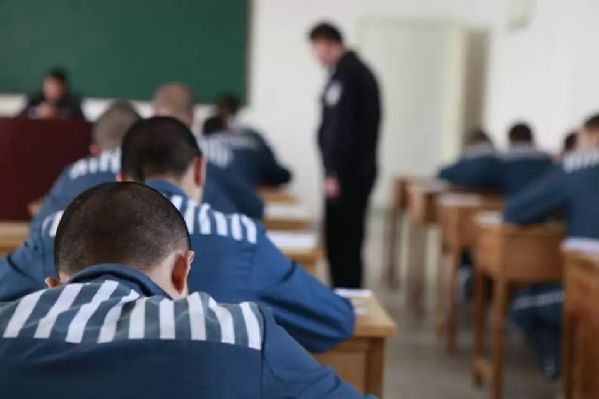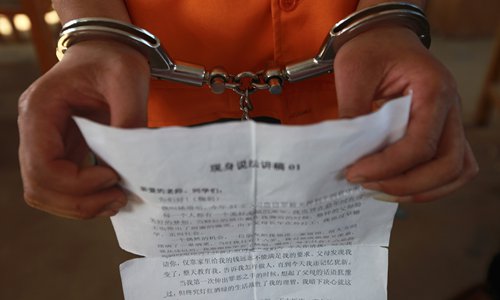
From the People's Daily app.
And this is Story in the Story.
Dozens of deputies to the National People's Congress (NPC) proposed during the two sessions lowering the age of criminal liability for young people to 12 years old, in response to the increasing number of reports on juveniles being involved in violent cases in recent years.
In 2012, China added a juvenile section to its Criminal Procedure Law, codifying the principle of education first, punishment second.
According to China's current Criminal Law, anyone who has reached the age of 16 and commits a crime bears criminal responsibility. Children aged 13 and under cannot bear criminal responsibility, while 14- and 15-year-olds are considered conditionally liable.
However, China's juvenile justice system has been a topic of discussion following some high-profile murder cases. In December, police in central Hunan province released a 12-year-old just nine days after he killed his mother, sparking concerns from other parents who feared the boy would pose a threat to their kids. A month later, another murder case involving a 13-year-old boy caused similar unease.
Today's story in the story looks at how the proposal of lowering criminal liability age has triggered discussions in China, and what are some new perspectives on juvenile delinquency.

Juvenile offenders in a Chinese prison. (Photo: Xinhua)
In recent years, the media has exposed several controversial cases in which young people who committed serious crimes have escaped punishment as they were below the age of criminal liability.
Together with 29 other deputies to the NPC, Liu Xiya, principal of Xiejiawan Primary School in Southwest China's Chongqing Municipality, proposed amending the Law of the People's Republic of China on the Protection of Minors.
Young offenders aged between 12 and 14 must take criminal responsibility for vicious crimes, and young offenders aged above 14 should be fully criminally liable. T hree cases of juveniles committing homicide occurred in Central China's Hunan Province from December 2018 to January - a 12-year-old boy killed his mother, a 13-year-old boy killed his parents with a hammer and a 13-year-old boy stabbed a 12-year-old classmate to death.
Some juveniles are well aware that they can escape punishment due to their age and continue to commit other crimes.
Society sees them as juveniles but they regard the public as fools. Lowering the age of criminal liability is the way to stop their crimes, read a commentary released online.
Many netizens agreed with the commentary, saying that the current age for criminal liability should not be used as a free pass for committing crimes. However, Zong Chunshan, director of the Beijing Youth Legal and Psychological Consultation Service Center, disagreed with amending the age.
"Lowering the age of criminal responsibility will not reduce juvenile delinquency, since the deeper reasons lie in the absence of guardians, school education and social support.
"And one characteristic of juvenile offenders is that they never consider the consequences when committing crimes, and lowering the age of criminal responsibility will not stop them from doing wrong," Zong said.

A juvenile delinquent in custody is invited to a middle school in Tangshan, North China's Hebei Province, to tell his story with the aim of preventing juvenile crimes. (Photo: VCG)
Peng Xinlin, a professor from Beijing Normal University, was quoted by Legal Mirror as saying that the public should take an objective and reasonable view toward the crimes of minors and not let individual cases influence their judgment.
"The Criminal Law has set clear stipulations on the age for juveniles to take criminal liability, which is in accordance with the principle that education is more important than punishment," Peng said.
Zong said, "Preventing juvenile crimes only by amending laws without involving more efforts from guardians and schools is like trying to milk a bull.
"We should now be making more efforts to establish centers and schools which can correct these juvenile offenders."
Peng believes that multiple measures should be taken to prevent juvenile delinquency, including improving systems to prevent bullying in schools, improving the living and studying environment for juveniles and offering support for minors and families who need help.
Peng said that taking in juveniles who escape punishment due to their age and offering them interventional education would be a good way to save those who go astray and safeguard social stability.
The proposal made by the 30 deputies also noted the importance of supervising juvenile offenders. A long-term tracking system of these juveniles should be established with working staff from the judicial authorities.
A draft for the amendment of the Law of the People's Republic of China on the Protection of Minors has been drawn up and will be handed to the Standing Committee of the NPC to review in October.
(Produced by Nancy Yan Xu, Da Hang, Brian Lowe and Lance Crayon. Music by: bensound.com. Text from Global Times)


